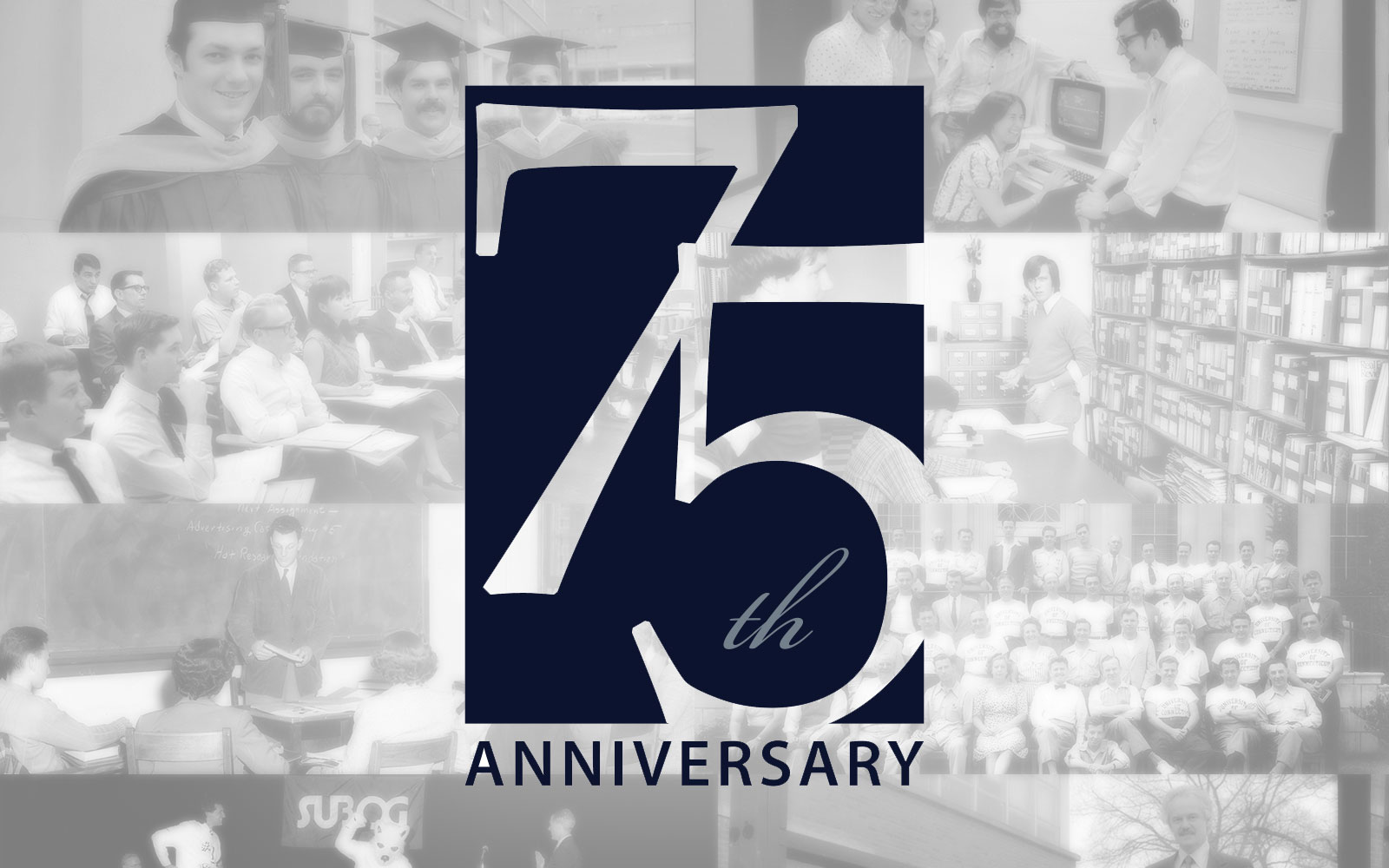
If Laurence J. Ackerman, the first dean of the UConn School of Business, could see how the small program he created has grown into an educational powerhouse, no doubt he would be pleased.
The School, then known as the School of Business Administration, started in 1940-1941 with fewer than three dozen students. Its formation was nestled between two seismic events in American history: The Great Depression and the beginning of U.S. involvement in World War II.
Enrollment was slow until the end of the War, when returning GIs were eager to pursue a college education. In 1945 alone, the University saw a 90 percent increase in student enrollment.
Ackerman, who had previously worked as a professor, was a staunch believer in a quality education, said his son, James Ackerman, a Boston attorney. The dean didn’t care about palatial buildings—and often disagreed with others when they suggested pursuits that lacked a strong educational purpose.
Under Ackerman’s vision, programs in accounting, insurance, finance, labor, management, marketing and secretarial studies took shape.
As the School of Business celebrates its 75th anniversary this academic year, some of the beliefs that Ackerman espoused still shape the program today. He tried to hire the very best faculty, not only capable educators, but people who cared deeply about the students they served.
That is one of many threads that carries through to the school today, said John A. Elliott, the 14th dean of the School of Business.
“Much has changed over more than seven decades—the names and faces and some of the fields of study,’’ Elliott said. “The role of the School of Business has changed from strictly a teaching mission to one that also embraces both research and service to the community.”
“The role of the School of Business has changed from strictly a teaching mission to one that also embraces both research and service to the community.”
– John A. Elliott
Today, as much as ever, the School of Business is an integral part of the fabric of higher education, said UConn President Susan Herbst.
“A strong, ambitious business school is necessary at any university in the 21st century that aspires to be a national leader in education, innovation and entrepreneurship,’’ Herbst said. “At UConn, our School of Business is pursuing excellence not only in traditional fields, like management and accounting, but also in valuable research that assists our state in growing its economy, and practical experience to help our students enjoy fruitful careers.
“It’s a true partnership that reflects the work of skilled educators, generous donors, loyal alumni, and business leaders who provide their valuable time and notable talents to support the School of Business.’’
“A strong, ambitious business school is necessary at any university in the 21st century that aspires to be a national leader,”
– Susan Herbst
The School’s history is steeped in excellence and pride and its future is vibrant, she said.
Not only does the School welcome undergraduate students, as it did at the School’s inception, but it also boasts a robust and highly recognized MBA program, other equally strategic graduate degree programs, advanced-level certificates and an impressive doctoral program. The School’s programs and faculty are consistently award winning, and its students are highly sought after. School of Business alumni are particularly loyal to their alma mater and many continue to lend their expertise to the School and to mentor students, a testimonial to their belief in its mission and pride in its success.
Over the coming year, we will showcase some of the programs that have been instrumental in the School’s success, as well as share some great photographs from earlier days. We will feature some of the people whose high standards elevated the School to deliver the excellence it is known for today. And we will introduce alumni who have taken the outstanding education they received at UConn and used it to help change the world.